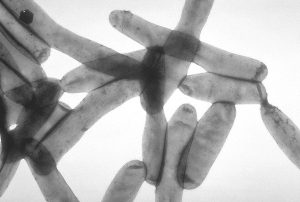(This blog post was prepared by students enrolled in the Koala Poop Microbiome Class in the Fall of 2016 at UC Davis) The last seven weeks of laboratory and computer work have been a mixture of successes and failures that eventually brought us to Week 8. The goal of this week was to build phylogenetic …
(This blog post was prepared by students enrolled in the Koala Poop Microbiome Class in the Fall of 2016 at UC Davis) This week in lab we finally identified our microbes! The past six weeks have been a culmination of lab work, both successful yet sometimes frustrating, to bring us to this point of finally …
(This blog post was prepared by students enrolled in the Koala Poop Microbiome Class in the Fall of 2016 at UC Davis) This week’s goal was to successfully perform PCR cleanup. Last week we performed gel electrophoresis to determine if there was a positive or negative PCR result. At the end of last week, a …
(This blog post was prepared by students enrolled in the Koala Poop Microbiome Class in the Fall of 2016 at UC Davis) The original goal of this week was to perform DNA clean up via a PCR clean-up kit, but unfortunately the kits were on backorder. Thus, the focus of the class shifted to gel …
(This blog post was prepared by students enrolled in the Koala Poop Microbiome Class in the Fall of 2016 at UC Davis) Polymerase Chain Reaction Polymerase Chain Reaction (PCR) amplifies a small amount of DNA into a much larger amount of DNA within a short time. The purpose of this lab was to prepare the …
Quick post here (h/t to Paula Olsiewski for the link) about a cool-sounding new device for the rapid detection of Legionella. I can’t say that I’m on board with the fanciful claims made in the press release (e.g. “The risk of catching fatal Legionnaires’ disease from air conditioning units has been dramatically reduced“) but the …
(This blog post was prepared by students enrolled in the Koala Poop Microbiome Class in the Fall of 2016 at UC Davis) This week we set out to extract DNA from isolated bacteria grown in liquid culture to further analyze it. Students in the lab were assigned test tubes containing tannin degrading bacteria which have …
You know sometimes you use a working title for something for long enough that it becomes the title? Like “Snakes on a Plane”. That’s what happened in this case, we also meant to come up with a name for this class… never did and so the official name at the registrar is “Koala Poop”. Awesome. …
(This blog post was prepared by students enrolled in the Koala Poop Microbiome Class in the Fall of 2016 at UC Davis) The goal of this week was to isolate a single bacterial colony for further study. This week we observed bacterial growth from our koala poop samples. With a partner, we obtained and observed …
(This blog post was prepared by students enrolled in the Koala Poop Microbiome Class in the Fall of 2016 at UC Davis) Koalas (Phascolarctos cinereus) are currently threatened by a highly infectious disease known as Chlamydia pecorum. In response to the growing prevalence of this disease in koala populations, researchers are treating affected koala bears …
